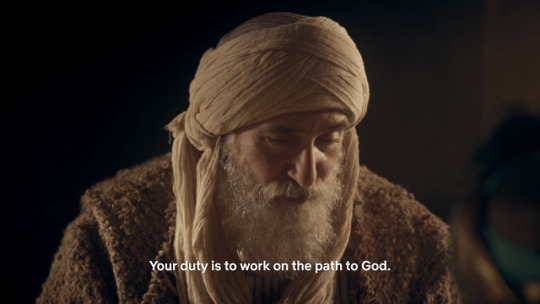Text
The Mughal Empire
The Mughal Empire ruled South Asia from 1526-1857. They originated in Central Asia, and were descended from the Mongol ruler Genghis (Jenghiz) Khan and Timur (Tamerlane), the great conqueror of Asia.
The first Mughal emperor, Babur hailed from the Barlas tribe, which was of Mongol origin and had embraced Turkic and Persian culture. They had also converted to Islam centuries earlier and resided in Turkestan and Khorasan.
The first Mongol to convert to Islam was Berke Khan in 1252. He was a grandson of Genghis Khan and the Khan of the Golden Horde (which ruled parts of Russia and the Caucasus).
The major Mughal emperors were:
Babur (r. 1526-30)
Humayun (r. 1530-56)
Akbar (r. 1556-1605)
Jahangir (r. 1605-27)
Shah Jahan (r. 1627-58)
Aurangzeb (r. 1658-1707)
48 notes
·
View notes
Text
“This above all: to thine own self be true,”
— Polonius, Hamlet
68 notes
·
View notes
Text
“If we let ourselves, we shall always be waiting for some distraction or other to end before we can really get down to our work. The only people who achieve much are those who want knowledge so badly that they seek it while the conditions are still unfavourable. Favourable conditions never come.‘”
— C.S Lewis
43 notes
·
View notes
Text
“All praise is due to Allah! Whatever Allah wills will happen, there is no power except stemming from Allah. Death has been written for the son of Adam in such a suitable way like the elegance of a necklace around the neck of a young girl. I am so eager to meet my ancestors like the enthusiasm of Jacob to see Joseph. The divine fate has destined for me a place of killing to which I have to go. I can see my limbs torn by wild beasts of the desert, between Nawawis and Karbala, so much so that they will thus fill their empty bellies. The decree cannot be avoided. Whatever pleases Allah pleases me. We, the household of the Prophet, are subservient to whatever God has destined us. We shall bear His trial patiently and He shall surely reward us with the rewards of those who persevere. The Prophet’s progeny shall never stray from the Prophet’s path. Rather, they shall be rejoined with him in the Presence of the Most Exalted One. His eyes will thus be cooled, and He will fulfill His promise. Whoever is present among us now and whoever is wholeheartedly determined to meet his Lord, let him depart with us. For, God-willing, I will be departing at the break of day.”
—
Imam Hussain (as)
Bihar al-Anwar, vol. 44 p. 366
(via sange-saboor)
Ya Hussain, Shah ast Hussain, Badshah ast Hussain
99 notes
·
View notes
Text
HOW TO LEAVE BAD MANNERS AND DISCIPLINE THE EGO.1
Dr Nour Kabbani
.
Mawlana Shaykh Nazim (q) says as long as we are in Maqam an-Nafs, the Station of Ego, we cannot get wired nor see Prophet Muhammad’s spirituality ﷺ. To be wired, to get out of the Station of Ego, we must leave bad manners. Then we emerge from fire, anger, hatred, to the Level of the Heart, which is jannah and there we connect to Rasulullah (s).
.
The ego only wants for itself and will not worship Allah. It perpetually asks, “What is the gain, what’s in it for me?” To kill that, the servant is assigned to recite the holy words “Laa ilaaha illa-Llah, laa ilaaha illa-Llah, laa ilaaha illa-Llah” and if we cannot, recite it at least one-hundred times each day. Most of us are reciting it only ten times after each prayer, if that.
HOW TO LEAVE BAD MANNERS & DISCIPLINE THE EGO.2
Dr Nour Kabbani 💜
.
Mawlana Shaykh Nazim (qaddas Allahu sirrah) said regularly reciting “Laa ilaaha illa-Llah" gets rid of any partnership with our Lord, for us to stop thinking, “What is in it for me?“ Some people read Surat al-Waqi`ah to get rich, but if there is no wealth to gain, will people not read it? Let us not put partnership there, that we worship only to achieve something. Let us reach Eternal Life. Why do we seek eternity? Shawqan `ishqan hubban, we want to know more about our beloved Rasoolullah ﷺ and our Lord and mashayikh. 💜
6 notes
·
View notes
Text
Stop wrestling
with a stubborn world.
It’s a loser’s game.
Drop the sword.
Stand on your shield.
When the battle without
ends
The struggle within
can begin.

1 note
·
View note
Text
What was our Prophet like?
He was the mildest of people and also the warmest and most generous of them.
He would fix his own sandals, patch his own clothes and help his family with the daily errands.
He was very shy; shyer than a virgin in her chamber.
He would respond to the invitation of slaves.
He would visit the sick.
He would walk alone [without guards].
He would allow others to saddle-up with him on his mount.
He would accept gifts.
He would eat food that was sent as a gift; but he never consumed anything that had been given as charity.
He did not have enough dates with which to be satisfied, nor was he satisfied with barley-bread for more than three consecutive days.
He would eat whatever food was readily available.
He never criticized food.
He never ate lying down, and ate whatever was closest to him.
He loved perfumes and disliked foul odors.
He honored people of virtue, and kept affectionate ties with nobles and dignitaries.
He never rejected anyone and would accept the excuse of those who presented excuses.
He would joke, but never would he utter anything untrue.
He laughed, but not loudly.
He would not let any time pass without being in the service of God or being engaged in whatever was essential for his own self-development.
He never cursed women, nor abused servants.
He never hit anyone, except for in jihad in God’s cause.
He did not perform revenge for his own sake, but did so when God’s limits had been transgressed.
If he was presented with two options he took the easier of the two, unless it entailed disobedience or the severing of ties – in which case he would be the furthest away from it.
He would sit in an assembly wherever it was convenient and would mingle among his Companions as one of them, so much so that when strangers came, they couldn’t tell him from others, except after inquiring as to who he was.
He would take to long periods of silence, but when he did speak he did so slowly and clearly, repeating himself so that he would be understood.
He used to pardon, even when he was in a position to punish.
He wouldn’t confront anyone with what they did not like.
He was the most truthful of men.
He was the one who most fulfilled his trusts, pledges and commitments.
He was the easiest going of people; the most affable; and the most generous in friendship.
Whoever looked at him unexpectedly, was amazed by him.
Whoever knew him, loved him.
His Companions, whenever they spoke about worldly affairs, he would join in with them; and when, in recollecting their pre-Islamic days, they would laughed, he would simply smile.
He was also the bravest of men.
One of his Companions recounts: When the fighting grew intense, we would seek shelter behind God’s Messenger.
Source: Summary of Mukhtasar Minhaj al-Qasideen by Imam Ibn Qudamah (pp. 157-158)
4K notes
·
View notes
Text
اے مدینے کے زائر خدا کے لیے
داستانِ سفر مُجھ کو یوں مت سُنا
بات بڑھ جائے گی دِل تڑپ جائے گا
میرے مُحتاط آنسو چھلک جائیں گے.
O Pilgrim of Madina, for God’s Sake
Please don’t tell me the story of narrative journey
The matter shall exceed, the heart left bereaved,
My cautious tears shall flow forth.
(Qari Waheed Zafer Qazmi)
53 notes
·
View notes
Photo

Imam ‘Ali’s Description of the Righteous
It is related that a devout worshipper by the name of Humam came to Imam ‘Ali, may God ennoble his countenance, and asked him to describe the God conscious people so vividly that he could almost see them. Imam ‘Ali responded: “Their speech is truthful; their clothing is moderate; and they walk with utmost humility. They lower their gaze from everything God has forbidden. They allow their ears to listen only to that which is beneficial. Their souls accept exposure to trials and tribulations [in adherence to the truth] as easily as others accept luxurious living. Were it not for their appointed term, their spirits would not have remained in their bodies the span of a twinkling of the eye due to their intense longing for their Lord. Because the Creator is magnified in their souls, everything else is viewed as insignificant in their sight. Their hearts are sober; people are safe from any wickedness from them; their bodies are slim [they don’t overindulge their appetites]; their basic needs are few; and their souls are chaste. They patiently endure the few days they spend in this world knowing that they will be followed by a long, peaceful rest—this is the profitable life-transaction which their Lord has allowed them to enter into. The world desired them; however, they had no desire for it. It imprisoned them, but they ransomed their souls from it [with their restraint and righteous deeds].
At night, their feet are arranged in ranks as they dutifully recite the Qur’an in slow measured tones. If they come upon a verse that stimulates [in them] longing [for the delightful things which God has promised] they ponder it, craving to attain them. Their souls soar due to the intensity of their longing for those delights. If they come upon a verse that frightens them [with the threat of Allah’s dreadful punishment] they hear it reverberating in the depths of their hearts. They imagine that they hear the dreadful sounds of the Hellfire in the innermost recesses of their ears. You find them kneeling down [before their Lord], begging to be liberated from the Hellfire. As for their days, they are forbearing, clement scholars. They are righteous and pious. Fear [of Allah] piercestheir hearts like arrows. One who gazes upon them thinks that they are sick. However, they are far from being sick.
They are not satisfied with a minimal amount of righteous deeds, nor do they consider excessive amounts of worship to be great. They see their faults, and they fear that their deeds will not be accepted. If someone praises one of them, he says, ‘I know myself better than others [know me], and my Lord is more knowledgeable of me than myself. O God! Do not take me to task for what they say, and make me better than what they think of me, and forgive me for those sins which they are unaware of.”
One of the signs [of such a person] is that you observe strength in his religion. His gentleness is accompanied by sobriety. His faith is coupled with certainty. He longs for knowledge. He acts with forbearance. He lives moderately, even when blessed with wealth. He is humble in his worship. He endures poverty with dignified grace. He patiently endures trying circumstances. He seeks his sustenance from the lawful. He hastens to right guidance. He is agitated if he perceives greed in himself. He works righteousness all the while trembling, [fearing that his deeds won’t be accepted]. His greatest concern is gratitude. In the morning preoccupied with the Remembrance of God. He goes to bed at night overwhelmed, apprehensive. He rises in the morning overjoyed. His apprehension arises from the awareness of his heedlessness. His joy is caused by the bounties and mercy [God has opened up for him during the coming day]. If his soul presses him with something he despises, he does not concede [to it] and withholds from it what it desires. The comfort of his eye is that which is permanent [the reward of his righteous deeds]. His abstinence from that which is temporal. He mixes clemency with knowledge, and speech with action. He expects death at any moment. His slips are few [because of his cautiousness and deliberateness in speech and actions]. His heart is content. He is easy-going. He is constantly on guard against assaults upon his religion. His lusts are dead. His anger is suppressed. People anticipate goodness from him. They are safe from any wickedness from him. If he is in the company of the heedless, he is recorded as being mindful [of his Lord].
He overlooks those who oppress him. He gives to those who deny him. He joins relations with those who cut him off. He is far removed from any indecency. His speech is gentle. You find nothing bad in him. He is always a source of good. During calamities, he is composed. In dire straights, he is patient. In times of ease, he is thankful. He does not oppress those he dislikes, nor does he sin for the sake of those he loves. He admits the truth before his witnessing is sought. He preserves all he is entrusted with. He does not hurl abusive names at people. He never harms his neighbor, nor does he find joy in afflictions that befall his enemy. If he is transgressed against, he perseveres until God takes revenge for him. He relies on himself while he himself is a source of relief for others [they can rely on him]. He tires himself for the sake of his salvation, not burdening others in any way. His distance from those he avoids is a form of abstinence, while his drawing near to people is from his gentleness and mercy. Hence, his distance from people does not arise from arrogance and haughtiness, nor is his closeness to them motivated by cunning and treachery.”
Hearing this, Humam dropped dead. Imam ‘Ali, may God be pleased with him said, “This is what I feared would happen to him. Thus is the effect of a penetrating word when it reaches a receptive heart.”
17 notes
·
View notes
Quote
The man who moves a mountain begins by carrying away a small stone.
Confucius (via philosophybits)
2K notes
·
View notes
Quote
Happiness, then, is found to be something perfect and self-sufficient, being the end to which our actions are directed.
Aristotle (via philosophybits)
672 notes
·
View notes





















